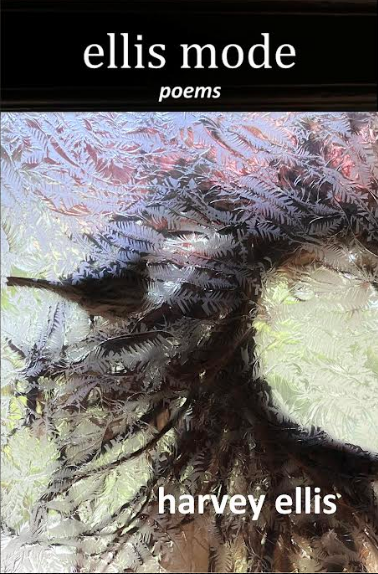A word of explanation:
harvey ellis is a figment of the imagination who writes poems.
He is meant to unroof the unconscious mind letting it dominate the words that fall to the page.
The unconscious is deep and powerful but we cannot not expect “logical sense” coming from there. The way it thinks is not linear but associative, using images and the spaces in between. It is a different brand of “logic.” But because of the freedom from linearity, it can be the source of envelope-pushing creative work, the kind of thinking that departs from the stodgy archives of the past to some new kind of future. So, you won’t find rational thinking from ellis, rather you must open your mind to a current in the flow of the river of emotion.
Ellis Mode
If, in this book, you are expecting a kind of language poetry that treats words as playthings and eschews meaning, it’s not here. The words in these poems reflect a cognitive approach made of layers. Ways of thinking get bent a little when the deeper levels of consciousness are allowed to have their play.
On the surface these poems may appear simple—lithe gatherings woven into something slightly strange but vaguely familiar. What’s happening is that there is a different kind of sense-making at work. One not held hostage by the one-dimensional, linear tradition of the daytime brain but more interconnected, web-like in how it draws together its behaviors.
The poems here serve as testimony to the fact that certain forms of understanding are best produced not by reductionist thinking but when informed by complexity. The task, of course, is to state that simply—words simple, ideas not. When successful, memory might be enticed to linger a while and learn something.
Expect to find in these little wisdoms more of the unusual than the mundane, more surprise than tradition. Even so, there will often be that palpable something that says, “this just might be true.”
The Color of Desire
“we all wish to reveal what we’re supposed not to”
harvey ellis has spent a lifetime perfecting the techniques he now uses to pathway into the interior consciousness and allow it full access to his poems. As a result he produces a series of mysteriously interconnected images, which have the feel of arriving as if from no single source. His poems have appeared in Cider Press Review, Tundra, The Bitter Oleander, VOLT, American Writing, among others. He was a finalist for the Francis Locke Memorial Poetry Award for the most imaginative poem of 1998.
(Petaluma River Press)
July 2008
Sleep Not Sleep
“thought is an egg with a radar system…
the present has no way to protect itself from the past”
"Wow! Lovely. Stark. Rich. Strange. I'd say these poems spy out the mind's quickest turns and slights and falls."
—Li-young Lee, poet
These succinct, curious, and crisp poems thoughtfully crafted by Mr. Ellis find a direct connection to the imagistic modalities of the interior life as they sway effortlessly from subject to subject. The relaxed, hypnotic quality he achieves provides a welcome escape from the linear life into the confident arms of the subjective world.



